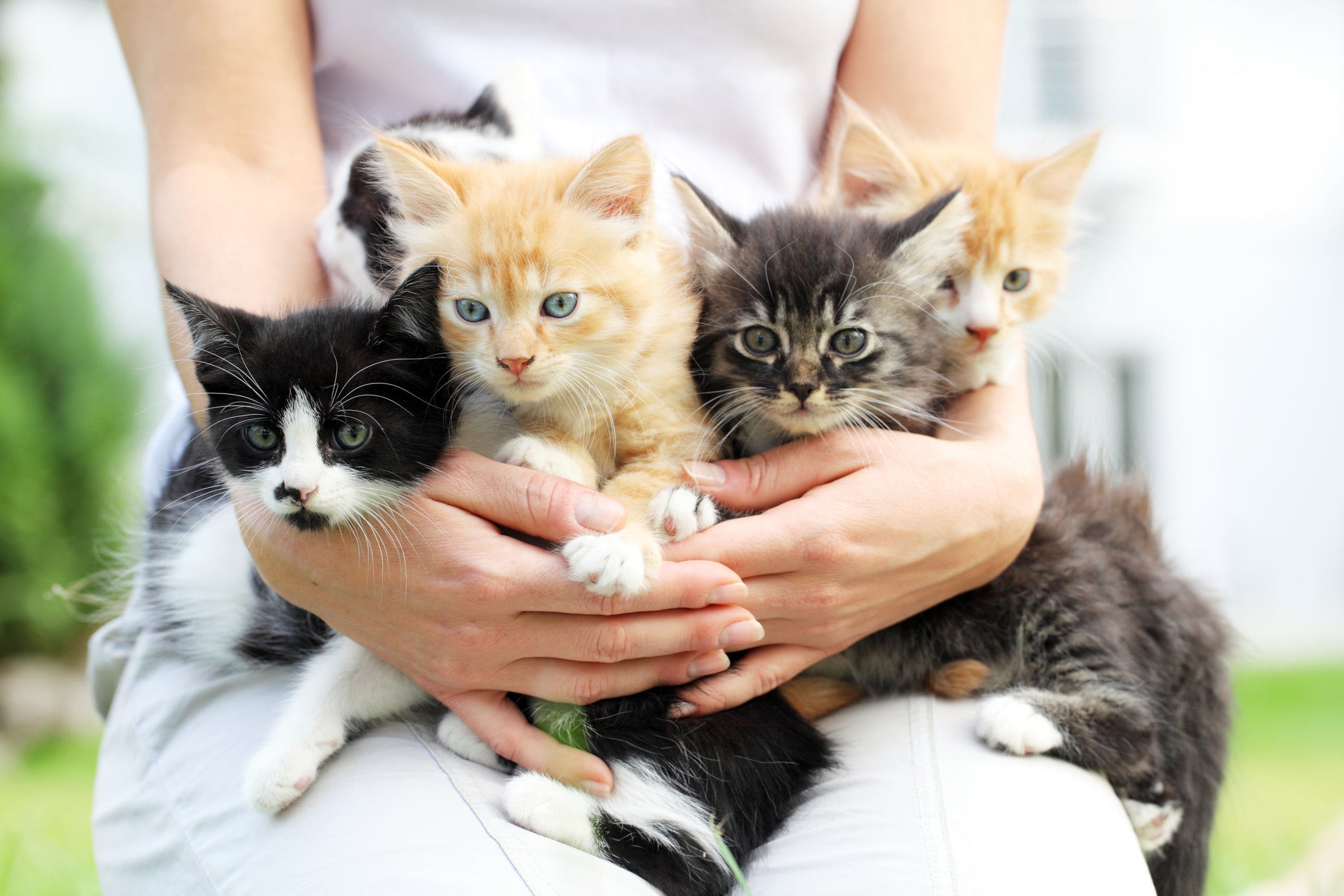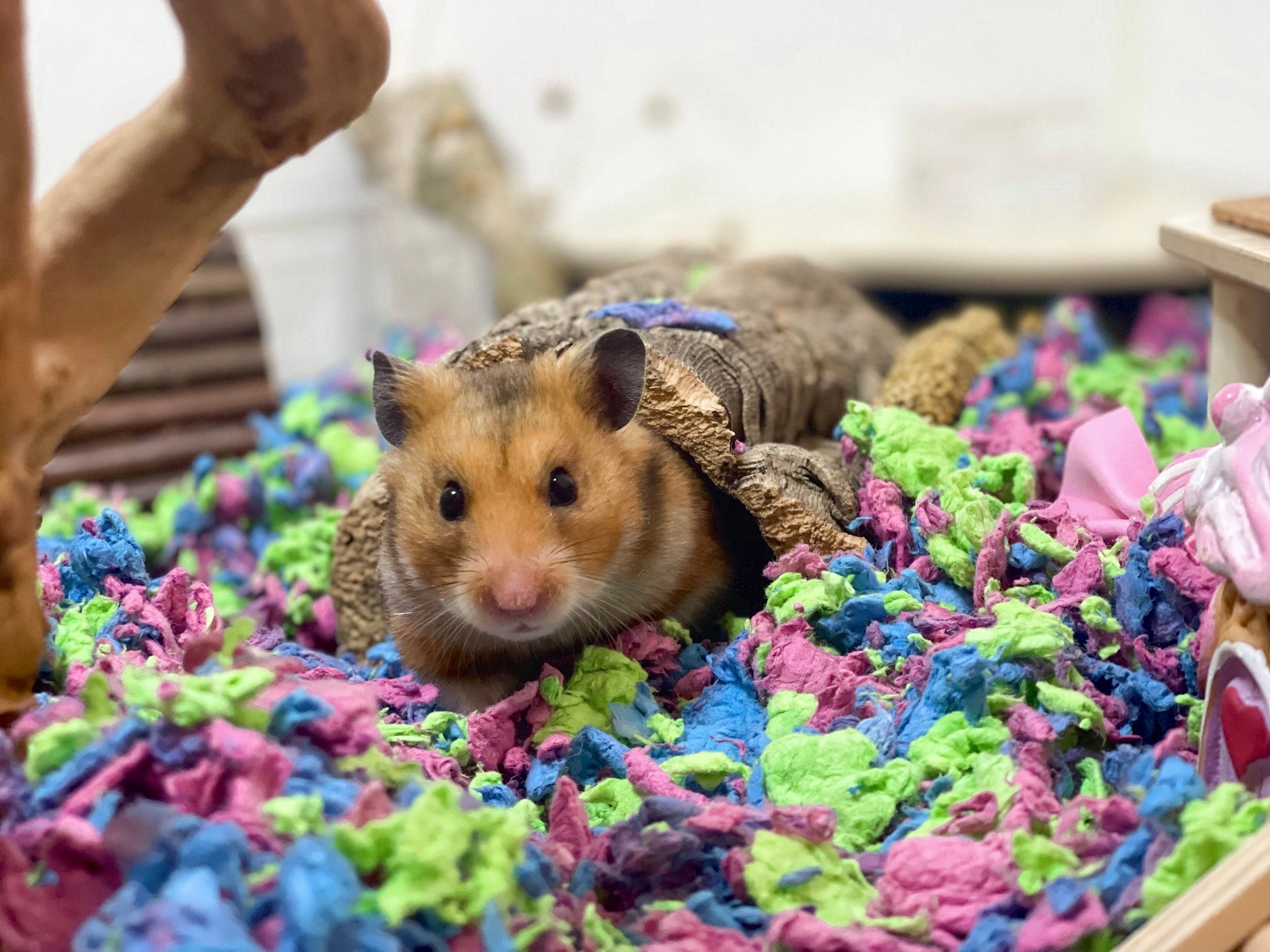A Beginner's Guide to the Best Ferret Care
Ferrets are adorable and entertaining pets. Though ferrets are generally healthy, like any other pet, they require proper care and attention to remain happy and healthy. The average lifespan of a ferret is 7-10 years. To ensure that your ferret lives a long and healthy life, you will need to provide proper housing, good nutrition, exercise, grooming, and preventative veterinary care.
1. Housing
Ferrets love to play and explore, which means that they need a spacious cage with plenty of room to move around. Their cage size should be at least 24 inches long, 24 inches wide and 18 inches high. Make sure the cage is big enough to separate your ferret’s food and water, bedding and litter. Multi-leveled cages work well for young healthy ferrets. Your ferret’s cage should be made of durable materials such as metal, plastic, or wood, with secure doors and locks to prevent your ferret from escaping. Midwest makes this very nice deluxe cage that works great for ferrets.
In addition to the cage, you will need bedding to cover the cage floor. You can use recycled paper products, aspen chips, and wood pulp products, such as carefresh®. carefresh® is ideal for ferrets because it is twice more absorbent than shavings, can suppress odors for up to 10 days, is 99% dust-free, and is soft and comfortable. Newspaper is not ideal since it is not very absorbent and needs to be changed frequently. Cedar and pine shavings are not recommended because they can cause respiratory problems. Corn cob products are also not recommended as they can be ingested and lead to obstructions. No matter which bedding you ultimately chose, the bedding needs to be changed regularly to keep the cage clean and odor-free.
Ferrets can be trained to use a litter box. You’ll need a corner litter boxes and a litter made from paper such as carefresh Rabbit and Ferret Litter. Finally, remember that your ferret needs a place to sleep and hide. They should have a hiding place where they can feel safe and secure. They also like to lounge in soft hammocks or slings.
2. Feeding
Ferrets are obligate carnivores with high metabolisms. Ferrets require a high-protein diet that is specially formulated for them. Feed your ferret high-quality commercial ferret food that is high in protein and avoid foods that contain fillers, artificial preservatives, and sugar. Remember to always provide clean water and change it frequently. Treats should also consist primarily of meat. It is important to know that cat and dog food do not fulfill the nutritional needs of ferrets.
3. Exercise and Play Time
Ferrets are naturally playful and social pets. They are not cage pets. To stay healthy, ferrets need regular exercise and playtime. Let your ferret go out of their cage for at least two hours per day so they can play and explore in a designated ferret-proof room or playpen. You can also take your ferret outside for walks using a special ferret harness. Purchase toys that are safe for your ferret to play with, like balls, tunnels (ferrets love tunnels), and chew toys. Make sure the toys you provide have nothing your ferret can chew off and swallow. Be sure to always supervise your ferret, as they are very curious and can get themselves into trouble if left unattended.
4. Grooming
Ferrets have a sleek coat that requires little maintenance. However, they do need to be groomed occasionally to prevent hairballs and maintain healthy skin. Brush your ferret's coat with a soft-bristle brush at least once per week. Like other mustelids, ferrets normally have a slightly musky odor. Regular bathing is not required, but if done should be no more than once a month as it can strip their skin of natural and essential oils leading to dry itchy skin.
5. Veterinary Care
Just like other animals, Ferrets need to see the veterinarian annually for a complete physical exam and vaccinations for canine distemper and rabies. As ferrets get older, they may require more frequent check-ups and need dental cleanings.
In conclusion, ferret are relatively low-maintenance pets. However, to stay healthy and live a long life, they need proper care. Follow these tips to ensure that your ferret lives a long healthy life.
Read MoreSigns Your Hamster May Be Sick and How to Prevent Illness
As a pet owner, it’s imperative for you to be able to identify if your pet is sick. However, as prey animals, hamsters are naturally good at hiding their illnesses. As a result, it is hard to tell if your hamster is sick, especially if you don’t know what you are looking for. The goal of this blog is to share some of the common signs of illness in hamsters and discuss what you should do if you notice any of them.
1. Change in behavior
One of the first signs of illness in hamsters is a change in behavior. If your hamster becomes more lethargic than normal, is not as active, or is sleeping more often, this may be an indication that they are not feeling well. Additionally, if they are not eating or drinking as much as usual, or are refusing to eat altogether, this is another major warning sign of illness and a reason to call your veterinarian.
2. Changes in their physical appearance
Changes in your hamster’s physical appearance may be another sign your hamster is sick. Be sure to check your hamster’s appearance daily and look for any changes. Does your hamster have any discharge from their nose, eyes, or mouth? Does their coat look unkept, matted or do they have any hair loss or bald spots? Does your hamster have any lumps, bumps or swelling anywhere? How do their feet look? Are they red, irritated, scaly, swollen? Do they seem to be having any trouble walking?
3. Change in stool
Stool is another indicator of your hamster’s health. Change in stool can be sign that your hamster is sick. Be on the lookout for changes in your hamster’s stool color, consistency, and amount.
If you notice any changes in their behavior, appearance, or stool, it could be a sign that your hamster is ill and needs to see a veterinarian right away. Your veterinarian will examine your hamster and may need to run some diagnostic tests to determine the problem. Then they will recommend an appropriate treatment plan for your hamster.
Signs of Illness
Change in appetite
Nasal or ocular discharge
Lumps, bumps or swelling on the body
Change in coat
Red irritated feet
Change in stool
Prevention
Is there anything you can do to help keep your hamster healthy? Yes! Providing your hamster with a healthy diet and access to fresh water at all times is crucial to their overall health. Avoid placing your hamster's cage in drafty areas and utilize a high quality, dust-free bedding, like carefresh® bedding. Carefresh® bedding is dust-free, twice more absorbent than shavings, can suppress odors for up to 10 days, and is soft and comfortable. Be sure to keep your hamster’s cage clean and free from moisture. While we can’t prevent all illnesses, taking these important steps are the best way to prevent many common medical problems seen in hamsters.
In conclusion, being aware of and looking out for changes in your hamster's behavior and physical appearance is crucial in identifying if they are sick. Prompt veterinary care and preventative measures will help keep your furry friend healthy and happy. As a responsible pet owner, it's essential to stay vigilant and take action as needed to ensure the best possible care for your hamster.
Read MoreEssential Tips for Choosing the Right Pet for You and Your Family
Picking the right pet for your family is more important than you may think. It can be the difference between a seamless fit or a mismatch with your lifestyle and expectations. Unfortunately, shelters are full of pets that ended up in there because they were a poor fit for the family or the they underestimated the level of responsibility or financial impact of having a pet.
Dogs
The decision to get a dog should not be taken lightly. Though dogs make wonderful companions, they are a significant investment of time, money and emotions. Before you decide to get a dog, you need to ask yourself these questions:
Do you have time for a dog?
Do you have enough space for a dog?
Can you afford to properly care for them?
Are you prepared to take on this responsibility for the life of the dog, which could be 10 to 14 years?
Do you have someone to watch your pet when you work or travel?
If you answered yes to all of these questions, then you meet the bare minimum requirements to be a responsible dog parent, but you still have to decide which type of dog is best for you. To find the right dog for you, you need to consider how their size, coat, grooming needs, level of activity, ease of training, temperament, and breed-specific health issues match your lifestyles. For example, a high-energy Visla would get bored and destructive if they don’t get enough daily exercise, which is a recipe for disaster. However, the same high-energy Visla would be the perfect pet for an avid runner who wants a running buddy to join him on his daily runs. There is no perfect breed of dog or mixed-breed, but if you do your research, you can find the perfect dog for you and your lifestyle.
Cats
While cats may be easier to care for than dogs, they still require a sizable commitment. Even though you don’t have to walk your cat, your cat needs a litter box which requires regular maintenance. Are you prepared to scoop poop every day? Another difference between cats and dogs is that cats can get onto just about anything. No counter is safe and they seem to have a knack for finding the most expensive things to knock over! Like dogs and humans, cats also need regular check-ups, immunizations and parasite control. While cats are generally clean and self-groom, long-haired cats, like Perisans and Ragdolls, require daily brushing to avoid mats. If you aren’t willing to brush your cat everyday, consider getting a short-haired cat. It’s not about a beauty preference, it’s about being realistic about the grooming demands of having a long-haired cat. Even short-haried cats have grooming needs. Short-haired cats shed more than you would expect and brushing them on a regular basis keeps the shedding at a manageable level. Since cats can live 20 years if you are lucky, picking the right cat is an important decision with lasting consequences.
Small Animal Pets
Not ready to commit to a dog or cat? Guinea pigs, rabbits, hamsters, gerbils, rats and mice also make great pets. I know because I have had them all! As a veterinary student, I even had a hedgehog. Though small pets are less demanding for attention and require less maintenance than cats and dogs, they still need proper care. You need to clean their habitats, change their bedding, and give them fresh water and food daily. And though these pets have an independent streak, they still enjoy spending quality time with you. Just remember that their diminutive size makes them vulnerable to falls and injuries. Be extra careful if you have small kids as a fall can be fatal. To avoid falls, have your kids sit on the floor and have them hold their pet on their laps. And always remember to supervise your kids around small pets. If scared, small pets can bite over eager little fingers.
Choosing your next pet is an important decision with lasting implications. Although all pets require care and attention, some pets have greater needs. Ultimately the joy and love they give back makes it all worth it. To avoid disappointment, just remember to do your homework and pick the right pet to match your lifestyle and expectations.
Read MoreFilter - Key Words
- bedding
- biodegradable
- Bunny
- carefresh
- cat health
- cats
- CritterCare
- dog
- ferret
- fostering
- Guinea Pig
- habitat
- hamster
- health
- Healthy Pet
- kitten
- litter
- ökocat®
- paper bedding
- pets
- Rabbit
- safety
- small animal
- small pet
- sustainable
- Vet
- Veterinarian
Dr. Ruth MacPete

aka Dr. Ruth, The Pet Vet
“I am passionate about pet care and educating pet parents about making Earth-friendly choices, and I admire Healthy Pet for making products that are good not only for your pets, but also your family and the environment.”
Visit the Pet Vet






